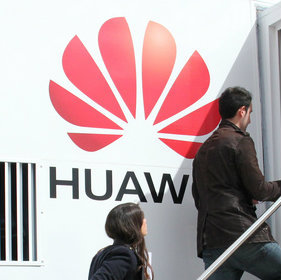Eurobites: Huawei cranks up European propaganda push
Also in today's EMEA regional roundup: MTS chooses Canonical's Charmed OpenStack; ETNO doesn't like German proposals on metadata use; Swisscom's eSIM tech makes damn fine cups of coffee.

Also in today's EMEA regional roundup: MTS chooses Canonical's Charmed OpenStack; ETNO doesn't like German proposals on metadata use; Swisscom's eSIM tech makes damn fine cups of coffee.
Huawei is continuing its campaign for rehabilitation in Europe with the promotion of a report it commissioned from analyst firm Oxford Economics which claims the beleaguered Chinese vendor brought 224,300 jobs to the continent in 2019. The report, entitled The Economic Impact of Huawei, also found that in 2019 Huawei made a €16.4 billion (US$19.4 billlion) contribution to Europe's GDP and "supported the generation of €6.6 billion ($7.8 billion) in tax revenues." The study seeks to quantify the company's total economic impact through both Huawei's own operations and the knock-on effects of demand for European products in the vendor's supply chain.
And here's why Huawei is bothering to pay for studies like the one above: The Swedish telecom regulator has revealed that Huawei has appealed Sweden's decision to exclude the vendor's gear from its 5G rollout. As Reuters reports, Sweden last month became the latest country to ban Huawei and ZTE from its 5G market, supposedly on the grounds of national security. (See Eurobites: China threatens Sweden after Huawei ban – report, No Huawei for bidders in Sweden's 5G auctions and Europe is showing Huawei the exit.)
Russia's MTS has chosen Canonical's Charmed OpenStack to power its next-generation cloud infrastructure. Through this partnership, MTS hopes to decrease the amount of time it takes to launch new services and reduce the total cost of ownership (TCO) of cloud infrastructure. The operator also hopes to set up a competence center for OpenStack-based offerings.
The European Telecommunications Network Operators' Association (ETNO) has slammed German proposals to amend forthcoming European Union rules governing WhatsApp and Skype that would have the effect of tightening up restrictions faced by telcos on how they use communications metadata. As Reuters reports, the proposals, if adopted, could prevent the telecom industry from, for example, using network location data for smart transport services as a potential revenue stream.
Swisscom is championing its eSIM approach to multinational IoT applications, which it says gets around the problems caused by certain countries' restrictions on network roaming. Unlike a conventional SIM card, the eSIM – which in this context would likely be embedded in a machine – can be activated with the SIM profile of the respective local provider, without requiring local intervention. Swisscom uses the example of connected coffee machines made by WMF Group GmbH which, when switched on in China, the US or Brazil, register as online in Zuchwil or Geislingen, the Swiss towns where they are made, allowed WMF to use the data they generate. Figure 1:
 The smile that says "my coffee machine is connected"
The smile that says "my coffee machine is connected"Nokia has completed the communications infrastructure for the Ceneri Base Tunnel, part of a new railway link through the Alps which cuts the journey time between Zurich and Milan by up to an hour. The system comprises a video surveillance system, two tunnel radios and two emergency communications systems.
— Paul Rainford, Assistant Editor, Europe, Light Reading
About the Author(s)
You May Also Like




_International_Software_Products.jpeg?width=300&auto=webp&quality=80&disable=upscale)







